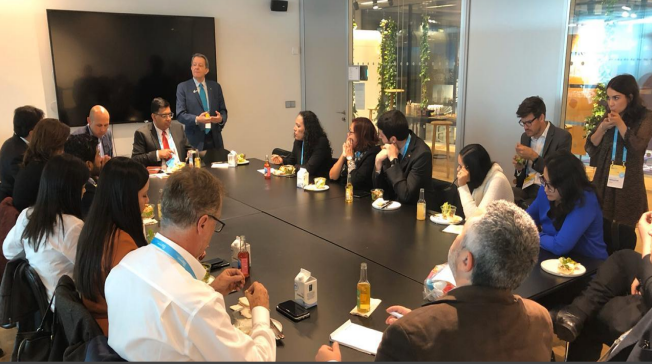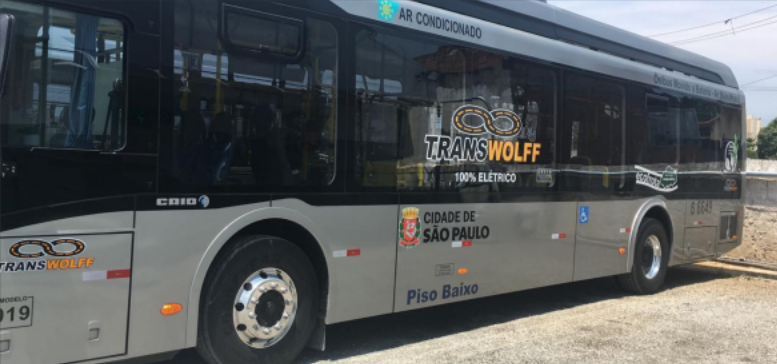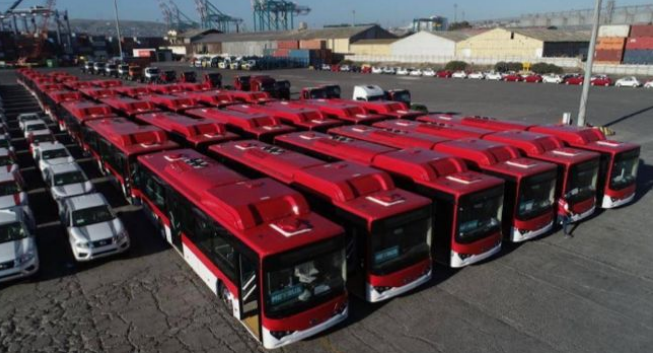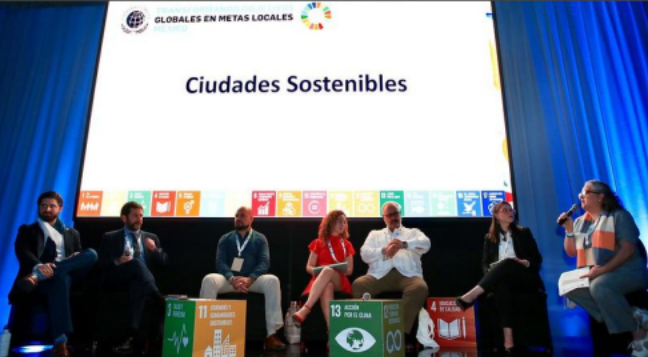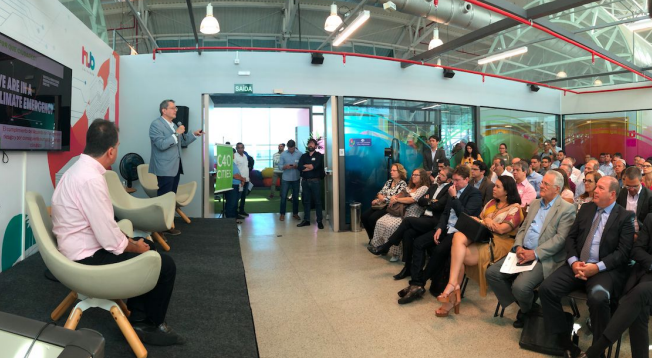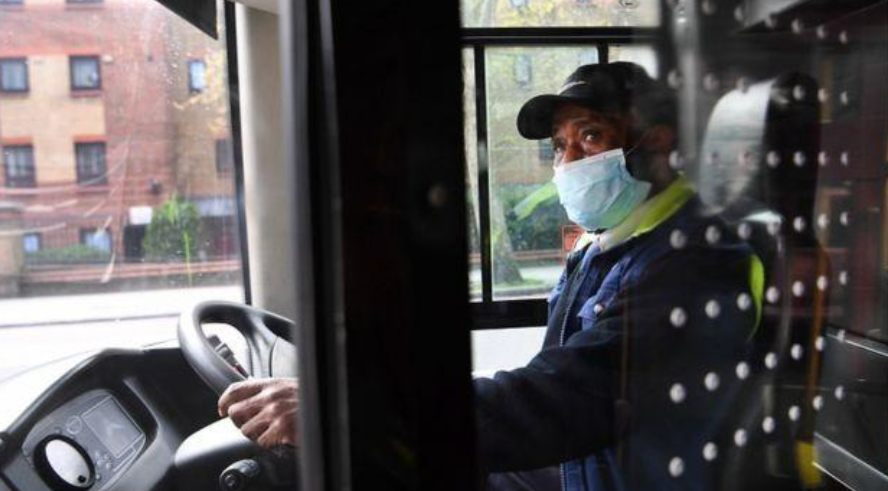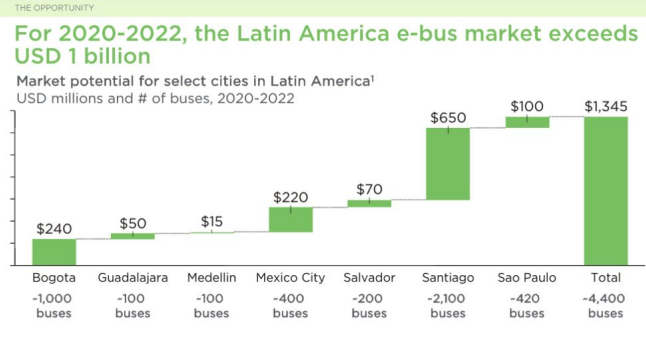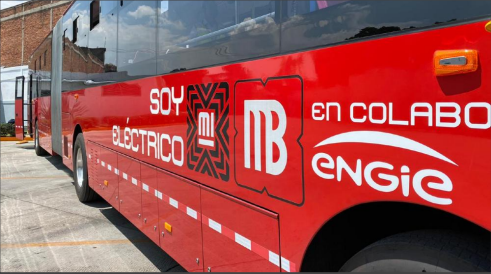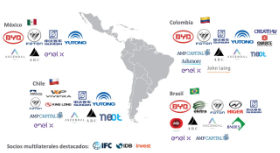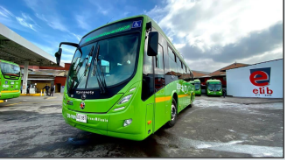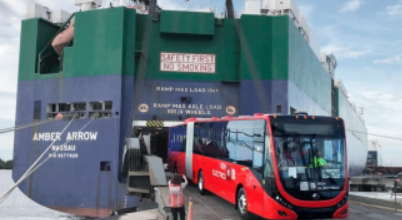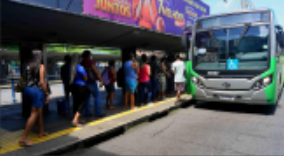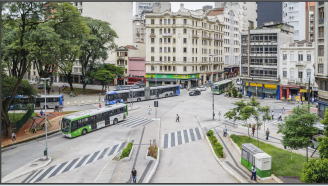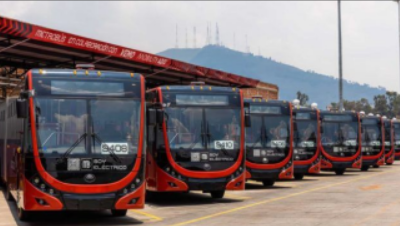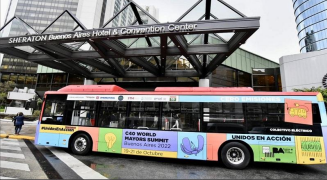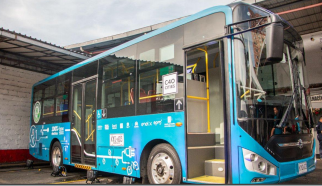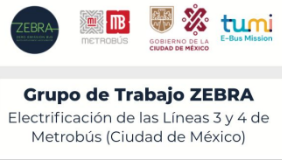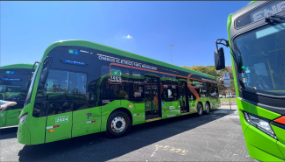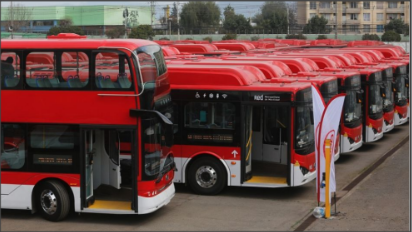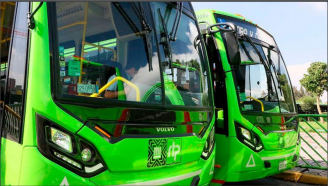Publications
-
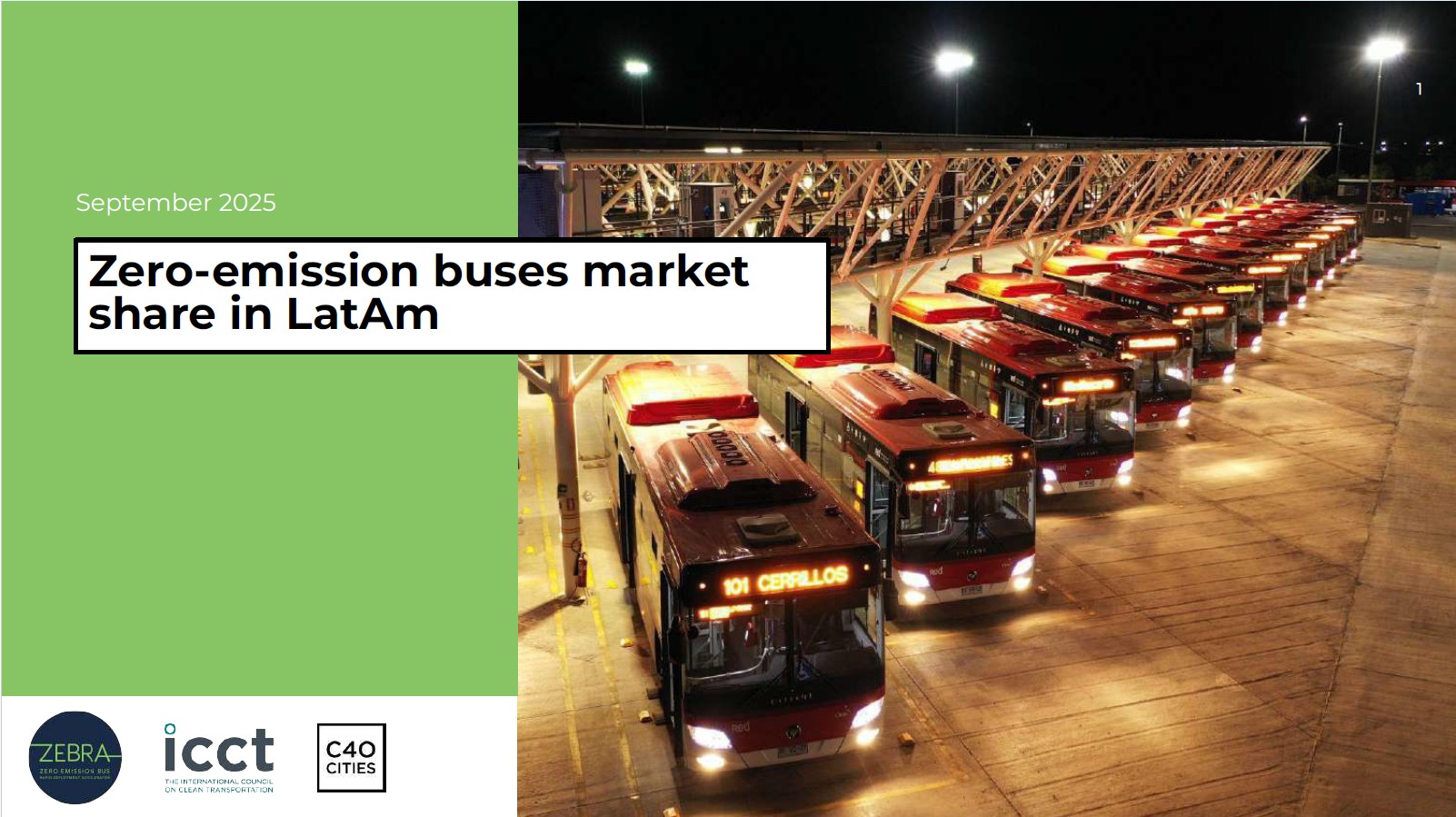
Zero-Emission Buses Market in Latin America
This report provides a comprehensive overview of the state of investments and financing trends for zero-emission buses (e-buses) in Latin America from 2017 to 2025, focusing on Brazil, Chile, Colombia, and Mexico. It reveals a significant acceleration in the market, with cumulative investments reaching USD 4.4 billion, far exceeding initial commitments and financing over 5,500 [...]
Read More... from Zero-Emission Buses Market in Latin America
2025Report
EN -
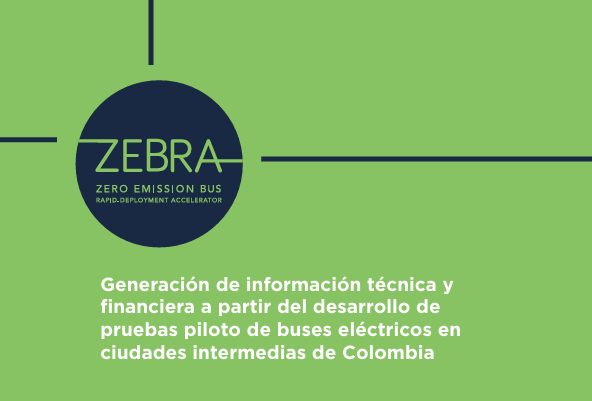
Generación de información técnica y financiera a partir del desarrollo de pruebas piloto de buses eléctricos en ciudades intermedias de Colombia
This report presents the results of pilot tests conducted with electric buses in intermediate cities in Colombia—Montería, Sincelejo, Ibagué, and Armenia—as well as in Medellín, under the ZEBRA initiative. The collected data demonstrate the technical and financial viability of zero-emission technology, with energy consumption ranging from 0.42 to 0.64 kWh/km and sufficient range for urban [...]
2025Report
ES -
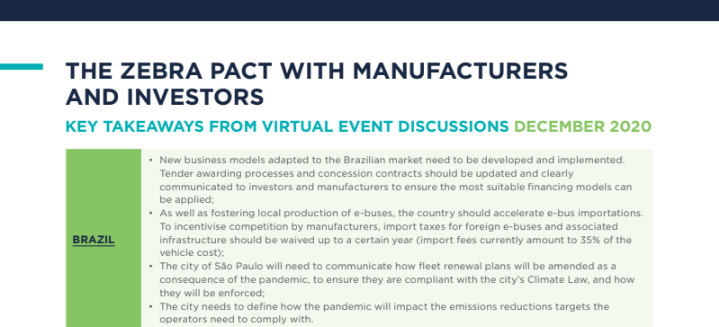
ZEBRA pact with manufacturers and investors
Key takeaways from virtual event discussions December 2020 [...]
Read More... from ZEBRA pact with manufacturers and investors
2020SummaryLatin AmericaMarketZEBRA
EN -
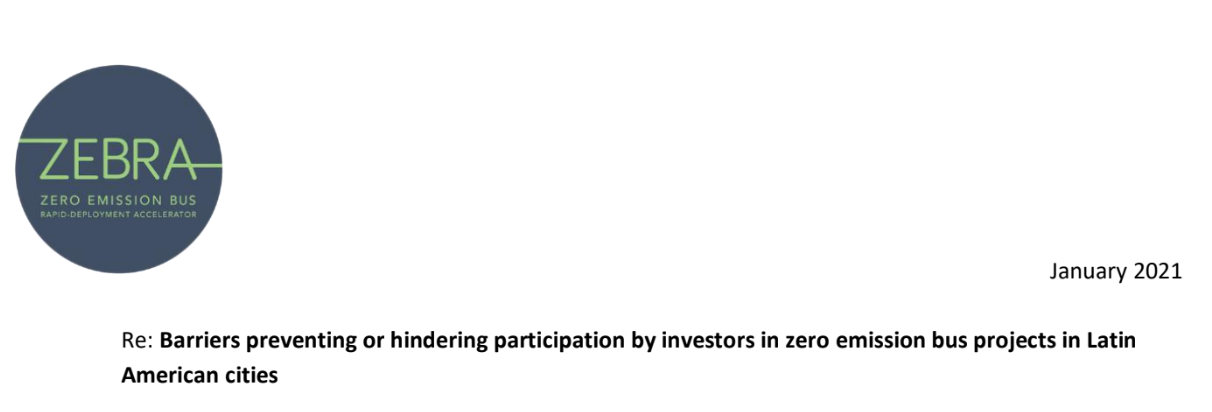
Memo: ZEBRA Investors Working Group – Barriers Identified
This document aims to lay out some of the key barriers that have been highlighted by investors and shouldnot be interpreted as prescriptive. [...]
Read More... from Memo: ZEBRA Investors Working Group – Barriers Identified
2021Memofinance
EN -
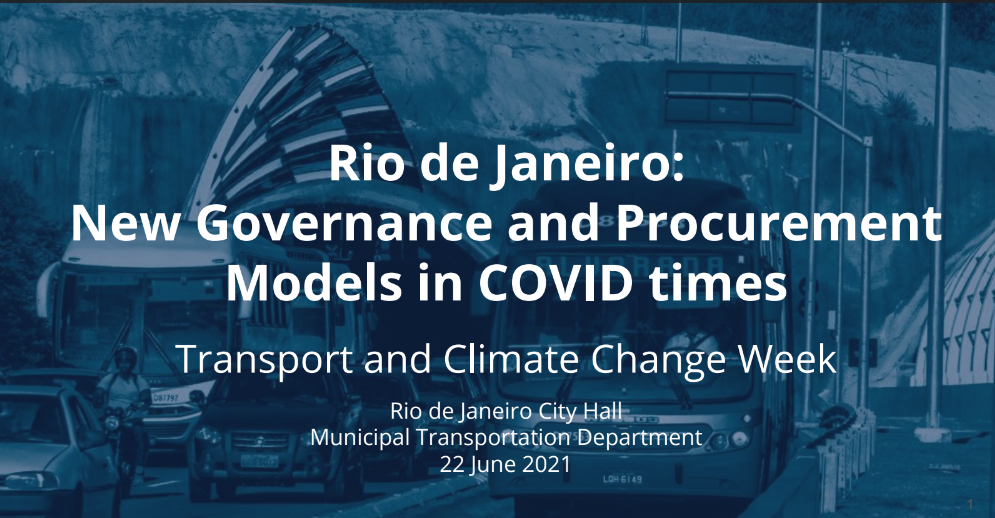
Rio de Janeiro: New Governance and Procurement Models in COVID times
Rio de Janeiro City Hall’s presentation on the challenges imposed by the COVID-19 in the conventional system and BRT and its opportunities for eletrification. [...]
Read More... from Rio de Janeiro: New Governance and Procurement Models in COVID times
2021PresentationprocurementRio de Janeiro
EN -
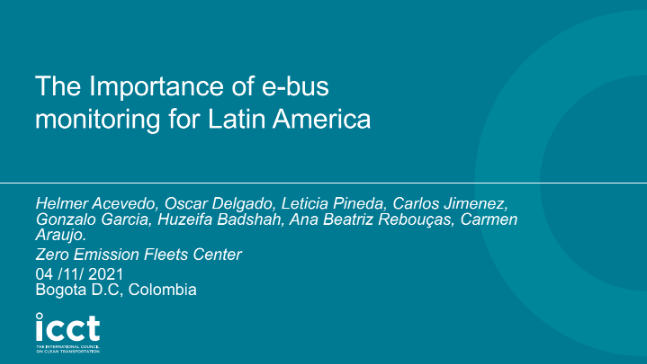
The Importance of e-bus monitoring for Latin America
ICCT presentation on the importance of using telematics to monitor the performance of e-buses. [...]
Read More... from The Importance of e-bus monitoring for Latin America
2021PresentationIndustrytelematics
EN -
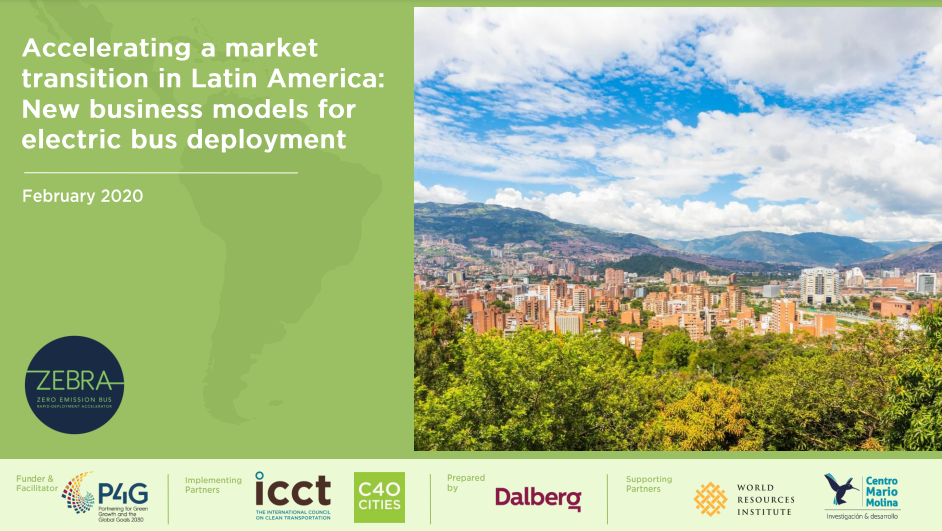
Accelerating a market transition in Latin America: New business models for electric bus deployment
This report maps and evaluates the diverse municipal bus ownership and operational models currently in use in cities across Latin America. Based on the findings, the report proposes a set of commercial models which can support the deployment of electric buses in the region, which have been tested for viability in Medellín and Mexico City. [...]
2020Reportbusiness modelsLatin America
EN -
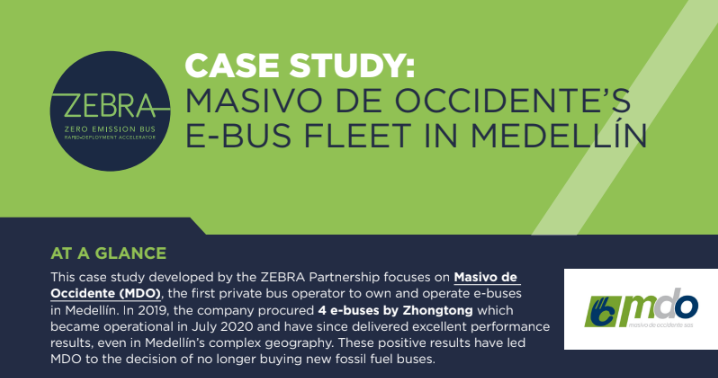
Investing in electric bus deployment in Latin America: Overview of opportunity and market readiness
This report aims to assist the ZEBRA Partnership with its goal of accelerating the transition to zero-emission buses across Latin American cities by highlighting the business case for electric buses, the current state of the market, and its potential for growth. There are investment synopses for Bogotá, Santiago, Mexico City, São Paulo and Medellín. [...]
2020ReportAmérica Latinafinance
EN -
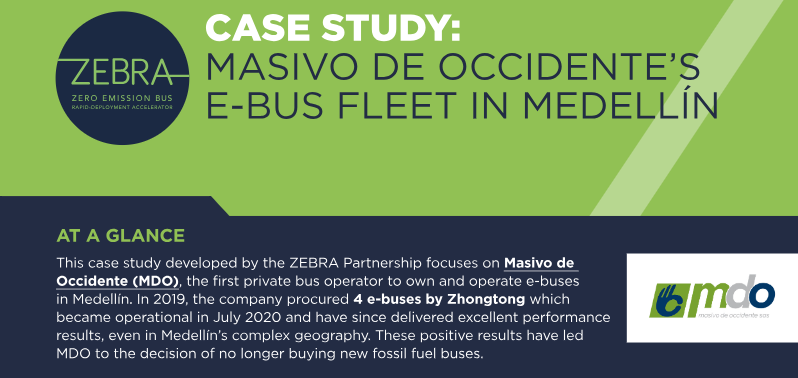
Case Study: Masivo de Occidente’s e-bus fleet in Medellín
This case study focuses on Masivo de Occidente (MDO), first private bus operator to own and operate e-buses in Medellín. [...]
Read More... from Case Study: Masivo de Occidente’s e-bus fleet in Medellín
2021Case StudyColombiaMedellín
PT EN ES -
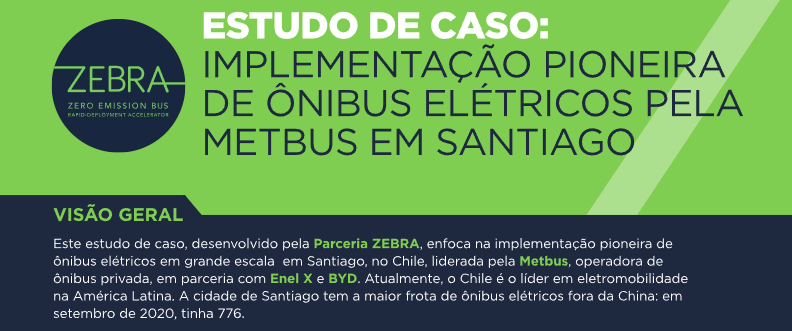
Case Study: Metbus pioneering e-bus deployments in Santiago
This case study focuses on the pioneering large-scale e-bus deployments in Santiago, Chile, led by Metbus, a private bus operator, in partnership with Enel X and BYD. [...]
Read More... from Case Study: Metbus pioneering e-bus deployments in Santiago
2020Case Studye-busespilotSantiago
PT EN ES -
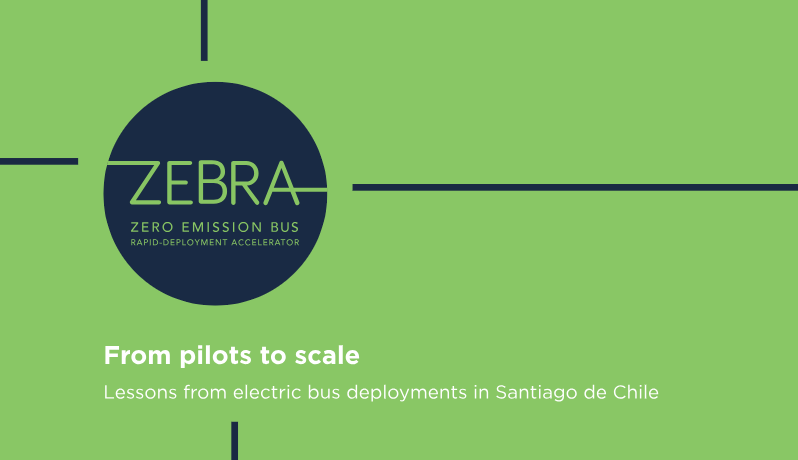
From pilots to scale: Lessons from electric bus deployments in Santiago de Chile
This case study aims to analize how Santiago becomes a global leader in the adoption of electric public transport, the lessons learned and what is the future of public transport in Chile. [...]
Read More... from From pilots to scale: Lessons from electric bus deployments in Santiago de Chile
2020Case Studye-busespilotSantiago
EN -
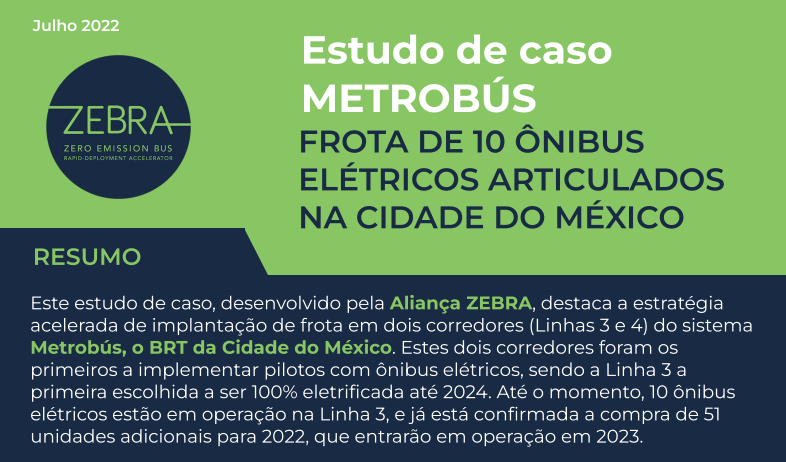
Case study METROBÚS: fleet of 10 articulated electric buses in mexico city
This case study focuses on the analysis of the accelerated deployment strategy for fleets in two corridors (Lines 3 and 4) in Mexico City’s BRT system, Metrobús. [...]
Read More... from Case study METROBÚS: fleet of 10 articulated electric buses in mexico city
2022Case StudyBRTcase studyMexicoMexico City
PT EN ES -
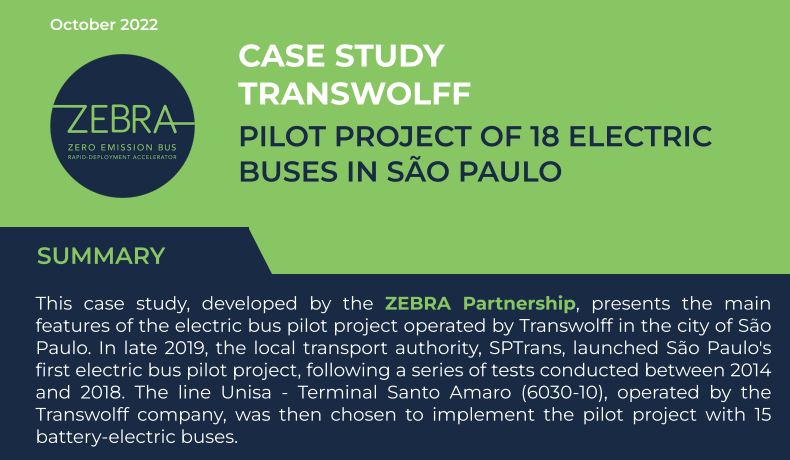
Case Study Transwolff: Pilot Project of 18 Electric Buses in São Paulo
This case study presents the main features of the electric buses pilot project operated by Transwollf in the city of São Paulo. [...]
Read More... from Case Study Transwolff: Pilot Project of 18 Electric Buses in São Paulo
2022Case StudyBrazilcase studySão Paulo
PT EN ES -
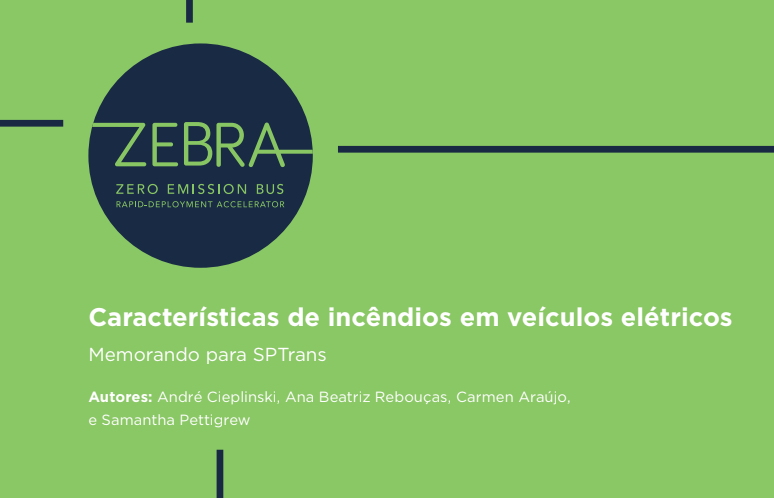
Characteristics of fires in electric vehicles
This memo aims to provide information on fire incidents identified in electric buses and their possible causes. [...]
Read More... from Characteristics of fires in electric vehicles
2022Memoe-buses
PT EN ES -

Investment Guide for Zero-Emission Buses in Brazil
This guide aims to attract new investments for implementing Zero Emission (ZE)buses in Brazil, focusing on battery-powered models.Therefore, the term “ZE-bus” will refer to this specific type of bus. [...]
Read More... from Investment Guide for Zero-Emission Buses in Brazil
2023ReportBrazilfinance
PT EN -
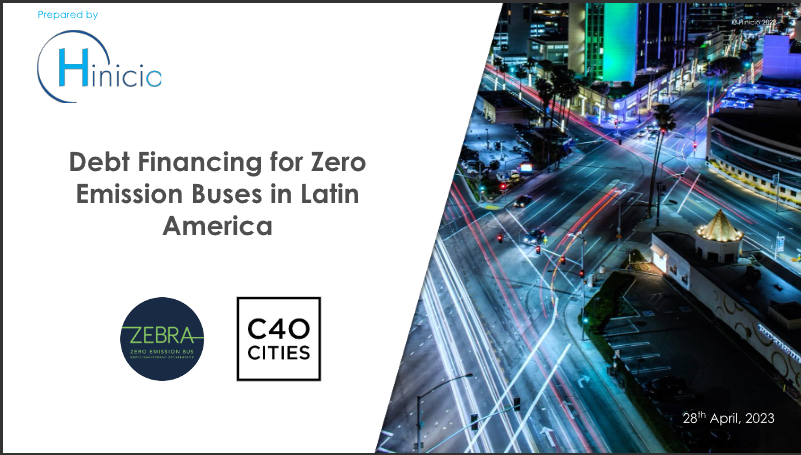
Debt financing for zero emission buses in Latin America
This analysis aims to understand how cities can work with banks in LATAM to improve their ability to finance ZE buses. [...]
Read More... from Debt financing for zero emission buses in Latin America
2023ReportfinanceLatin America
EN -
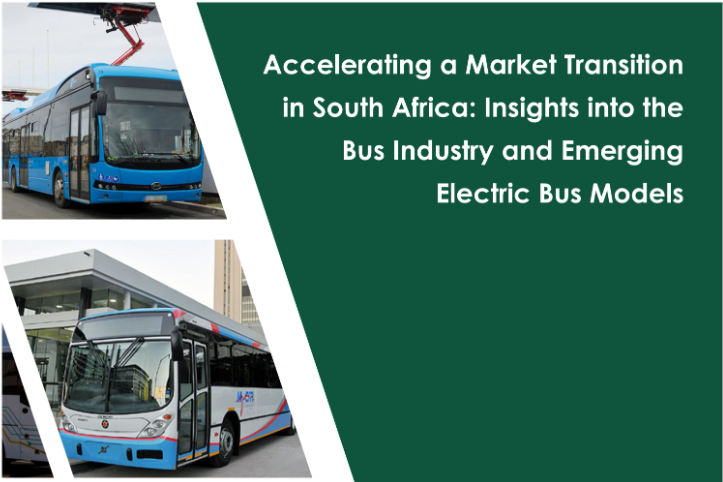
Accelerating a market transition in South Africa: Insights into the bus industry and emerging electric bus models
Focusing on Durban, Cape Town, Ekurhuleni, Johannesburg and Tshwane, this explains the current bus and electric bus (e-bus) landscape in South Africa, e-bus market potential, and models to accelerate e-bus deployment. More specifically, it presents the results of research examining bus ownership and service provision models, key stakeholders in both public and private sectors, the [...]
2024Reporte-busesMarketSouth Africa
EN -
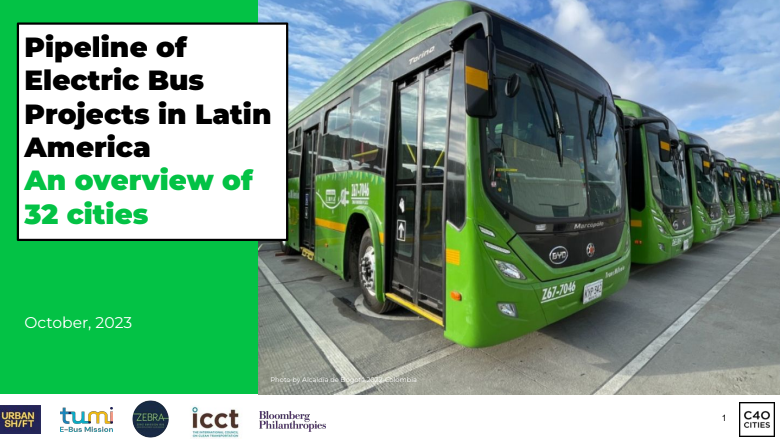
Pipeline of Electric Bus Projects in Latin America: An overview of 32 cities
To understand how electric bus projects are developing in the Latin American region and the plans that cities have for the electrification of public transportation fleets. This will provide a better overview to investors and financiers and help bridge the link between the needs of the cities with available financing supply. [...]
Read More... from Pipeline of Electric Bus Projects in Latin America: An overview of 32 cities
2023Reporte-busesfinanceLatin America
EN ES

